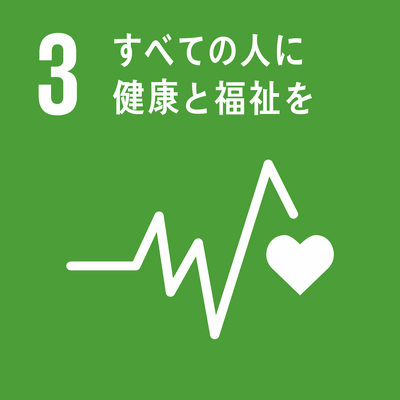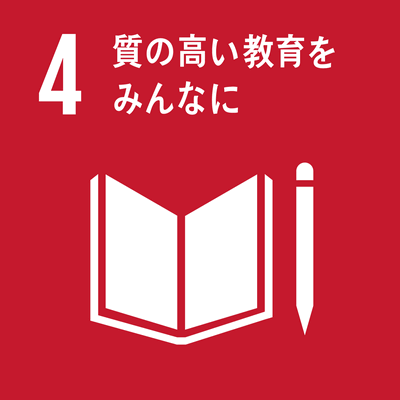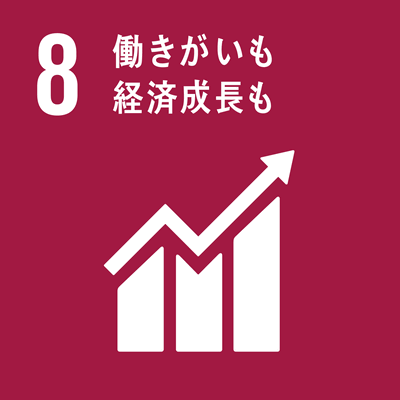シラバス表示
シラバスの詳細な内容を表示します。
→ 閉じる(シラバスの一覧にもどる)
科目の基本情報
| 開講年度 | 2021 年度 | |
|---|---|---|
| 開講区分 | 教養教育・教養統合科目・国際理解・現代社会理解 | |
| 受講対象学生 |
学部(学士課程) : 1年次, 2年次, 3年次, 4年次, 5年次, 6年次 この授業はTOEIC600点以上の学生に限られている。 This course is limited to students with a TOEIC score of 600 or higher. |
|
| 授業科目名 | 国際理解特殊講義 | |
| こくさいりかいとくしゅこうぎ | ||
| Lecture Course in International Understanding | ||
| 授業テーマ | 仕事と国際理解 | |
| 単位数 | 2 単位 | |
| ナンバリングコード | libr-comp-ILEC1211-001
|
|
| 開放科目 | 非開放科目 | |
| 分野 | 社会 (2014年度(平成26年度)以前入学生対象) | |
| 開講学期 |
前期 |
|
| 開講時間 |
木曜日 1, 2時限 |
|
| 授業形態 |
ハイブリッド授業 * 状況により変更される可能性があるので定期的に確認して下さい
「オンライン授業」・・・オンライン会議ツール等を利用して実施する同時双方向型の授業 |
|
| 開講場所 | ||
| 担当教員 | サコラヴスキー ジェシー (教養教育院) | |
| SOKOLOVSKY, Jesse (College of Liberal Arts and Sciences) | ||
| SDGsの目標 |
|
|
| 連絡事項 | * 状況により変更される可能性があるので定期的に確認して下さい |
|
学修の目的と方法
| 授業の概要 | Work and Global Understanding In this course, we will examine the connections between work, culture, and personal values, and consider how they affect work experiences and work-life balance. A unique point of the course is the use of simulations—role-plays in which you will learn by doing, not just sitting and listening. We will also use a combination of short lectures, discussions, interviews, and student-led research. No two lessons will be exactly alike. Part 1: Our own interests What are we good at? What can we offer an employer? What do we need from a job in order to be happy? Part 2: Issues in the workplace We will examine exploitation at so-called “black companies”. How do such work conditions develop? What influence does culture have? What have workers around the world done to obtain better conditions? What have governments done? Part 3: Your topics Working as part of a team, you will choose a specific topic connected with work and research it in detail. After becoming experts, you and your teammates will prepare and teach a 15-minute lesson on your topic. Some example topics include discrimination in the workplace, education and work, and the role of A.I. in the workplace. |
|---|---|
| 学修の目的 | The main goal of the course is to understand the connections between work, culture, and personal values. Grasping these connections will provide you with context for understanding issues concerning work in modern society. It will also help you as consider your own future career. In the process of investigating, you will make discoveries, such as different interpretations of what is ‘normal’. You will see how 'normal' is constantly changing in our society, and you will gain a greater understanding of change in work environments. |
| 学修の到達目標 | By the end of this course, —you should have a deeper awareness of cultural influences on work and work values. —you should have a better understanding of fair and unfair labor practices, and the roles of employers, employees, and the government in creating work environments. —you should be particularly knowledgeable about a work-related topic which you have chosen to research. —you should be more comfortable and competent at using English in group discussions of social issues. |
| ディプロマ・ポリシー |
|
| 成績評価方法と基準 | Your grade will be determined as follows: • 20% Active participation in English in the classroom • 40% Weekly assignments • 20% Main written assignment • 20% Student-taught lesson *Full attendance and active participation in English are expected. You will lose points for being late, absent, or unprepared. |
| 授業の方法 | 講義 演習 |
| 授業の特徴 |
実地体験型PBL プレゼンテーション/ディベートを取り入れた授業 グループ学習の要素を加えた授業 Moodleを活用する授業 キャリア教育の要素を加えた授業 その他、能動的要素を加えた授業(ミニッツペーパー、シャトルカードなど) 教員と学生、学生相互のやり取りが、ほぼ英語で進められる授業 |
| 授業改善の工夫 | |
| 教科書 | Materials will be distributed by the instructor. |
| 参考書 | Connected with course content: • Bigelow, W. & Diamond, N. (1988). The power in our hands. Monthly Review Press. • Meyer, E. (2014). The culture map: Decoding how people think, lead, and get things done across cultures. PublicAffairs. • Mouer, R. & Kawanishi, H. (2005). A sociology of work in Japan. Cambridge University Press. • Terkel, S. (1974). Working: People talk about what they do all day and how they feel about what they do. Pantheon/Random House. Improving English language skills: • Murphy, R. (2015) English grammar in use book with answers and interactive ebook: Self-study reference and practice book for intermediate learners of English (4th Edition). Cambridge University Press. • McCarthy, M. & O'Dell, F. (2017). English collocations in use intermediate [or advanced] book with answers: How words work together for fluent and natural English (2nd Edition). Cambridge University Press. Additional resources will be given during the semester. |
| オフィスアワー | Thursdays, 16:00-17:00* CLAS building 1, Room 204 No appointment required *Please contact me directly if you would like to arrange an appointment at a different time. |
| 受講要件 | (1) This class is limited to students with a TOEIC score of 600 or higher. (2) The course is intended for students who want to engage with challenging content actively and in English. You will need to participate every week; there is no way to hide. Please consider these points when deciding whether this course is a good fit for you. |
| 予め履修が望ましい科目 | |
| 発展科目 | |
| その他 |
(1) This course is conducted entirely in English. We will create this all-English environment together by helping each other. You do not need to be a ‘master’ of perfect English. You do, however, need to make a commitment to using only English for the full 90 minutes every week. (2) If you have specific needs which could affect your experience in the class, such as a physical disability or a sensitivity to certain sounds, please tell the instructor during the first class session. I will do my best to accommodate your needs. (3) It will be helpful to have a dictionary available, either paper or electronic. Note that you may not use your phone during class except in emergencies, so it may not be used as a dictionary. |
授業計画
| MoodleのコースURL |
|---|
| キーワード | See English key words below. |
|---|---|
| Key Word(s) | Work-life balance, values, normal, change, culture, human rights, globalization, exploitation |
| 学修内容 | Session 1: Course introduction; exploration of work values S2: Skills, abilities, and personality traits; exploring their connections with work content, environments, and responsibilities S3: The concept of 'flow' S4: Real workplaces S5: Globalization and work S6: Simulation 1: Scientific management and changing work environments, part 1 S7: Simulation 1: Scientific management and changing work environments, part 2 S8: Simulation 2: Pushing for change, part 1 S9: Simulation 2: Pushing for change, part 2 S10: Simulation 3: International pressure S11: Work in the news (domestic) S12: Work in the news (international) S13: You're the expert, part 1 S14: You're the expert, part 2 S15: Final review The above schedule is provisional. Some adjustments may be made according to student needs and interests. |
| 事前・事後学修の内容 | There will be a variety of assignments outside of the classroom. These include: • An interview with a veteran in the workforce • Research of a work-related topic of your choice; preparing a lesson on that topic • Readings and reflections on the simulations and student-taught lessons • Reading news articles in English related to course content; preparing for discussions of those articles • Vocabulary review • English skill-building practice Complete the assignments on time so that you can participate in the related discussions which follow. All assignments are to be completed in English. |
| 事前学修の時間:120分/回 事後学修の時間:120分/回 |


